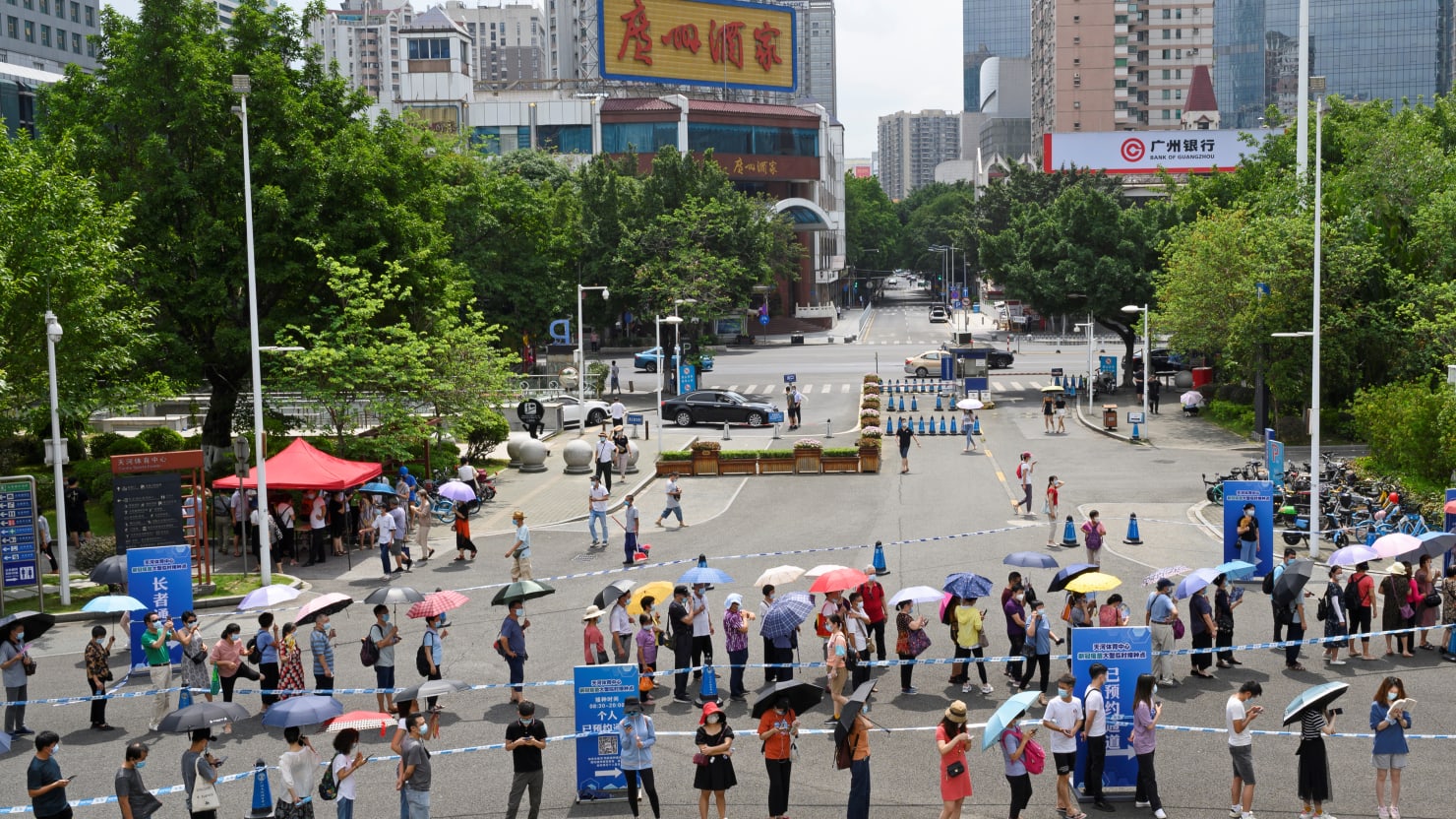
The Chinese government has taken the drastic measure of canceling hundreds of flights and locking down several streets in the city of Guangzhou, which has a population of over 15.3 million, because of the rapid spread of the Indian variant of COVID-19.
The bustling city has had, until now, very few reported cases, but since the weekend, the number of new infections tied to the variant first identified in India and now known as the Delta variant, has been doubling daily, according to Chinese state media, which often under reports statistics about the pandemic.
“In this race against the virus, we must run a bit ahead and run faster than before in order to block the spread of the virus and cut off the infection chain in time,” Huang Guanglie, director of the Guangzhou municipal health commission said Tuesday.
Since Sunday, hundreds of flights have been canceled into and out of Guangdong Baiyun international airport in an attempt to contain the fast spread. The municipal government also banned all residents of Guangzhou from leaving the city without a so-called “green pass” on their state-run COVID-19 apps.
Inside dining has also been prohibited in much of the city, and in lockdown communities, only one person can leave the house to buy essential goods.
The lockdowns are reminiscent of the beginning of the pandemic, when Wuhan became the first epicenter of the COVID-19 pandemic, which quickly spread to Italy and then the rest of the world. China has reported just 91,122 cases of COVID-19 and 4,636 related deaths since the pandemic began, a figure that is considered modest.
China, which has had a slow vaccine rollout in addition to the limited efficacy of its vaccine, has been using cash incentives to try to get as much as 40 percent of the population vaccinated.
Meanwhile, in India, the number of new infections has been dropping at a steady pace. On Tuesday, the country reported 127,510 new cases—the lowest increase since April 8, and 2,795 new COVID-19-related deaths, the lowest since April 26. India became the country hardest hit by the latest wave of the pandemic, running out of supplies including oxygen and medicines. The death toll at its height proved unmanageable as crematoriums ran out of firewood. The leveling off of new cases as India’s vaccination program finally kicks off has been heralded as a turning point in the pandemic.
Elsewhere, the Indian or Delta strain has threatened to derail efforts to reopen economies. In the U.K., infections tied to the strain have doubled in a week. In Vietnam, a new strain that appears to be a combination of the strain first identified in the U.K. and the Indian strain has been identified, worrying experts who still hope current vaccines will prevail.
Even as much of Europe and other parts of the world are opening up, it may yet be too soon to celebrate. On Tuesday, the Chinese government also reported the first-ever human case of the H10N3 strain of bird flu after a 41-year-old man tested positive. Much like the beginning of the current coronavirus pandemic, Chinese officials have insisted there is nothing to worry about.
No comments:
Post a Comment